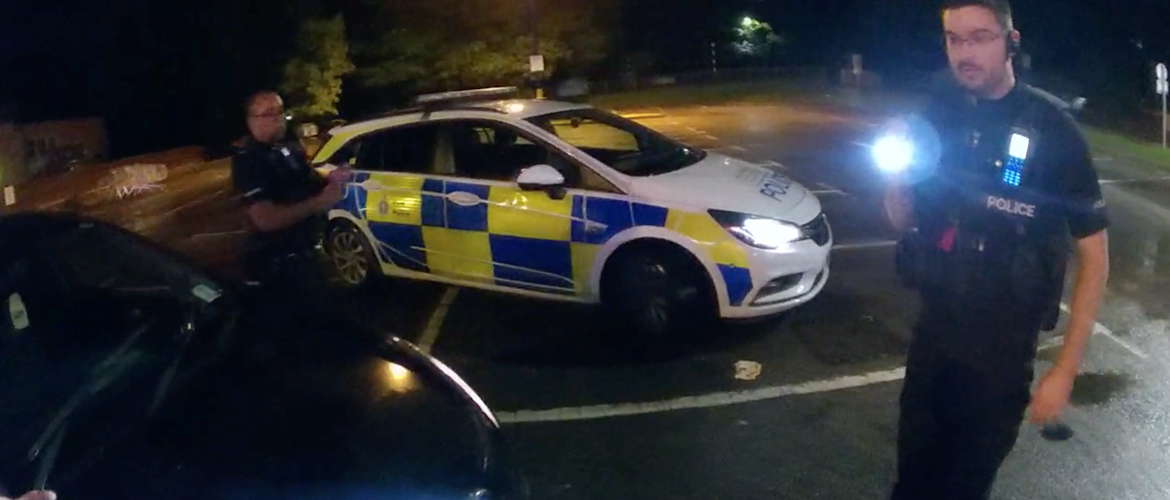Case Study: From Near Disaster to Minimum Penalty – How We Fought for Justice in a Dangerous Driving Case

When most people hear the term dangerous driving, they imagine the worst – high-speed police chases, reckless manoeuvres, or crashes that leave devastation behind. It is, without question, one of the most serious offences under the Road Traffic Act 1988. The consequences are life-changing:
-
A mandatory driving ban of at least 12 months
-
A requirement to re-sit and pass an extended re-test
-
A potential custodial sentence of up to two years
-
A permanent criminal record
It is not uncommon for a charge of dangerous driving to result in prison time, particularly where the alleged driving put lives at risk.
Our client knew all this. When the police accused them of dangerous driving, they were convinced their life was over. A ban meant they would lose their job, their home, and their ability to support their family. They told us that, at one point, they considered pleading guilty just to “get it over with.”
But this case shows exactly why you should never give up, and why proper legal advice can make all the difference.
What the Police Alleged
The Crown alleged that our client had driven at speed through a busy town centre on a Saturday evening. CCTV supposedly captured them weaving across the road, clipping a bollard, and narrowly missing pedestrians at a crossing.
From the outset, the allegations looked bleak. Any judge hearing the description alone would likely conclude that the driving fell “far below the standard of a competent and careful driver” – the very definition of dangerous driving.
But when we requested the CCTV, we hit a wall.
Why Disclosure is So Important
The prosecution does not have the luxury of choosing when, or if, to disclose evidence. Under the Criminal Procedure and Investigations Act 1996 (CPIA) and the Criminal Procedure Rules, they are required to disclose:
-
All material they intend to rely on (such as CCTV, body-worn footage, and witness statements).
-
Any material that may undermine the prosecution case or assist the defence.
These rules exist for a reason: a defendant cannot properly defend themselves without seeing the evidence against them.
In our client’s case, despite repeated requests, the Crown failed to serve the CCTV. They assured the court that it was “being prepared” and would be disclosed imminently. Deadlines were extended, hearings adjourned, yet the footage never arrived.
Fighting Back
By the time the matter was listed for trial, the situation was clear. The police had failed to serve the very evidence they claimed proved dangerous driving. Without it, the prosecution’s case collapsed.
On the day of trial, our solicitors made a robust legal submission: continuing without disclosure would be a breach of our client’s right to a fair trial under Article 6 of the European Convention on Human Rights.
The magistrates agreed. The Crown was left with no choice but to accept a plea to the lesser offence of careless driving – a non-imprisonable offence carrying only penalty points and a modest fine.
The Outcome
Instead of a lengthy ban and the stigma of a dangerous driving conviction, our client walked away with the minimum penalty possible. No extended re-test. No prison. No life-altering record.
For our client, it was the difference between losing everything and getting their life back on track.
Why This Case Matters
This case highlights something we see far too often at M.A.J Law: the system doesn’t always work as it should.
-
Deadlines are missed.
-
Evidence is mishandled.
-
Disclosure rules are ignored.
The law is clear, but unless lawyers hold the prosecution to account, defendants risk being convicted on incomplete or unfair evidence.
It would be easy to dismiss these failings as “minor mistakes,” but the stakes couldn’t be higher. Without our intervention, this client would almost certainly have been convicted of dangerous driving, an outcome that could have cost them their liberty, their livelihood, and their reputation.
A Word From Our Client
After the case, our client shared their relief:
“I thought it was all over for me. Everyone said I didn’t stand a chance. But M.A.J Law kept fighting when I had given up hope. They pushed the police at every stage and never let them cut corners. I can’t thank them enough for saving my licence, my job, and my future.”
Key Takeaway
This case is proof that even when the evidence looks overwhelming, procedure cannot be ignored. Dangerous driving is a serious allegation, but the police and prosecution must play by the rules.
At M.A.J Law, we specialise in finding the weaknesses in the Crown’s case. Whether it’s disclosure failures, forensic flaws, or procedural errors, our job is to make sure justice is done properly.
If you are facing a charge of dangerous or careless driving, don’t give up. Contact us today for confidential advice.



